Samon Agonistes
Samson Agonistes is a tragic closet drama by John Milton. It appeared with the publication of Milton's Paradise Regain'd in 1671.Samson Agonistes draws on the story of Samson from the Old Testament, Judges 13–16; in fact it is a dramatisation of the story starting at Judges 16:23. The drama starts in medias res.The story of Samson in Judges 13–16 portrays a man who was given great strength by God but who ultimately loses his strength when Delilah allows the Philistines to shave his hair during his slumber (Judges 16:19).
 Samson fell in love with a woman named Delilah, who lived in the valley of Sorek. The Philistine chiefs called on her, wanting her to coax from him the secret of his great strength, and how he might be captured and bound. "If you do this for us, we'll each give you eleven hundred silver shekels."
Samson fell in love with a woman named Delilah, who lived in the valley of Sorek. The Philistine chiefs called on her, wanting her to coax from him the secret of his great strength, and how he might be captured and bound. "If you do this for us, we'll each give you eleven hundred silver shekels." So she asked Samson: "Tell me where your great strength comes from - what it would take to bind you and make you captive." He replied: "If I were tied up with seven new bowstrings I'd lose my strength and be like any other man." The Philistines brought her the bowstrings and she tied him up with them. She had men hidden in another room, and she called out: "The Philistines have come for you, Samson!" He snapped the bowstrings just as a thread breaks when fire touches it. So they remained ignorant of the secret of his strength. She said to him, "Look, you're playing games with me, you're lying to me. Now tell me how you can be tied up." So he told her, "If they bind me with new ropes that have never been used, I'll be as helpless as anybody else." So Delilah tied him with new ropes. Then she called out: "The Philistines have come for you, Samson!" And the men were lying in wait in the other room. But he snapped the ropes off his arms like thread. Delilah said to Samson, "You are still making fun of me, telling me lies. Tell me how you can be bound!" "Well," he said, "if you weave my seven locks of hair into a loom, and fasten them with a peg, I'll be as weak as other men." She soothed him to sleep, took his locks of hair and wove them into the loom, and then shouted: "The Philistines have come for you, Samson!" But he woke up and pulled his hair loose. Delilah said to him, "How can you say you love me when you obviously don't trust me? Three times now you have you have made a fool of me!" She kept on at him day after day. He got so sick of her nagging that in the end he told her the truth: "No razor has ever touched my head, because I have been a Nazirite, dedicated to God from birth. If my head were shaved my strength would leave me and I would be no different from others." Delilah realised that this time he had told her the truth. She summoned the Philistines one more time. They came bringing the money. She lulled Samson to sleep in her lap, and called in a man to cut off his seven locks of hair - and his strength left him. Then she called out: "The Philistines have come for you, Samson!" He awoke from sleep, imagining he could get loose and escape as always before. He did not realise that Yahweh had turned away from him. The Philistines seized him, gouged out his eyes, and took him down to Gaza. They shackled him with bronze chains, and put him to work turning the mill in the prison. But the hair that had been shorn off began to grow again.
* Fatal Woman:Delilah
A femme fatale is a stock character of a mysterious and seductive woman whose charms ensnare her lovers, often leading them into compromising, dangerous, and deadly situations.Delilah is a character in the Hebrew bible Book of Judges, where she is the "woman in the valley of Sorek" whom Samson loved, and who was his downfall.
John Milton
John Milton (9 December 1608 – 8 November 1674) was an English poet, polemicist, man of letters, and a civil servant for the Commonwealth of England under Oliver Cromwell. He wrote at a time of religious flux and political upheaval, and is best known for his epic poem Paradise Lost (1667), written in blank verse.Milton's poetry and prose reflect deep personal convictions, a passion for freedom and self-determination, and the urgent issues and political turbulence of his day.
Paradise Lost
 Paradise Lost is an epic poem in blank verse by the 17th-century English poet John Milton (1608–1674). The first version, published in 1667, consisted of ten books with over ten thousand lines of verse.
Paradise Lost is an epic poem in blank verse by the 17th-century English poet John Milton (1608–1674). The first version, published in 1667, consisted of ten books with over ten thousand lines of verse.The poem concerns the Biblical story of the Fall of Man: the temptation of Adam and Eve by the fallen angel Satan and their expulsion from the Garden of Eden. Milton's purpose, stated in Book I, is to "justify the ways of God to men".
Satan is a figure appearing in the texts of the Abrahamic religions who brings evil and temptation, and is known as the deceiver who leads humanity astray. Some religious groups teach that he originated as an angel who fell out of favor with God, seducing humanity into the ways of sin, and who has power in the fallen world. In the Hebrew Bible and the New Testament, Satan is primarily an accuser and adversary, a decidedly malevolent entity, also called the devil, who possesses demonic qualities.
Lucifer has become a by-word for Satan/the Devil in the church and in popular literature", as in Dante Alighieri's Inferno and John Milton's Paradise Lost.
Prince of Darkness is a term used in John Milton's poem Paradise Lost referring to Satan as the embodiment of evil. It is an English translation of the Latin phrase princeps tenebrarum.
Dante Alighieri
A major Italian poet of the late Middle Ages. His Divine Comedy, originally called Comedìa (modern Italian: Commedia) and later christened Divina by Boccaccio, is widely considered the greatest literary work composed in the Italian language and a masterpiece of world literature.Divine Comedy
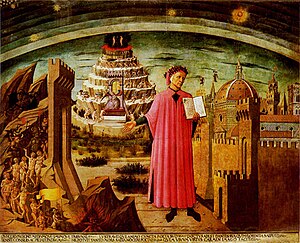 An epic poem by Dante Alighieri, begun c. 1308 and completed 1320, a year before his death in 1321. It is widely considered the preeminent work of Italian literature and is seen as one of the greatest works of world literature. The poem's imaginative vision of the afterlife is representative of the medieval world-view as it had developed in the Western Church by the 14th century. It helped establish the Tuscan language, in which it is written, as the standardized Italian language. It is divided into three parts: Inferno, Purgatorio, and Paradiso.
An epic poem by Dante Alighieri, begun c. 1308 and completed 1320, a year before his death in 1321. It is widely considered the preeminent work of Italian literature and is seen as one of the greatest works of world literature. The poem's imaginative vision of the afterlife is representative of the medieval world-view as it had developed in the Western Church by the 14th century. It helped establish the Tuscan language, in which it is written, as the standardized Italian language. It is divided into three parts: Inferno, Purgatorio, and Paradiso.On the surface, the poem describes Dante's travels through Hell, Purgatory, and Paradise or Heaven but at a deeper level, it represents, allegorically, the soul's journey towards God. At this deeper level, Dante draws on medieval Christian theology and philosophy, especially Thomistic philosophy and the Summa Theologica of Thomas Aquinas. Consequently, the Divine Comedy has been called "the Summa in verse".
>>Inferno
Inferno is the first part of Divine Comedy. It is an allegory telling of the journey of Dante through Hell, guided by the Roman poet Virgil. In the Divine Comedy, Inferno describes the recognition and rejection of sin. The poem starts on Maundy Thursday in the year 1300. The narrator, Dante himself, is thirty-five years old, and thus "halfway along our life's path" – half of the Biblical lifespan of seventy The poet finds himself lost in a dark wood in front of a mountain, assailed by three beasts (a lion, a lonza, and a she-wolf) he cannot evade. Unable to find the "straight way" ( also translatable as "right way") to salvation, he is conscious that he is ruining himself and falling into a "deep place" where the sun is silent .
The poem starts on Maundy Thursday in the year 1300. The narrator, Dante himself, is thirty-five years old, and thus "halfway along our life's path" – half of the Biblical lifespan of seventy The poet finds himself lost in a dark wood in front of a mountain, assailed by three beasts (a lion, a lonza, and a she-wolf) he cannot evade. Unable to find the "straight way" ( also translatable as "right way") to salvation, he is conscious that he is ruining himself and falling into a "deep place" where the sun is silent .Dante is at last rescued by the Roman poet Virgil, who claims to have been sent by Beatrice, and the two of them begin their journey to the underworld. Each sin's punishment in Inferno is a contrapasso, a symbolic instance of poetic justice; for example, fortune-tellers have to walk forward with their heads on backward, unable to see what is ahead, because they tried to see the future through forbidden means. Such a contrapasso "functions not merely as a form of divine revenge, but rather as the fulfilment of a destiny freely chosen by each soul during his or her life."
Dante passes through the gate of Hell, which bears an inscription ending with the famous phrase "Lasciate ogne speranza, voi ch'intrate", most frequently translated as "Abandon all hope, ye who enter here."
Dan Brown
Inferno is a 2013 mystery thriller novel by American author Dan Brown and the fourth book in his Robert Langdon series.
The New York Times praised the book as being "jampacked with tricks" and said that Langdon is on "one of those book-length scavenger hunts that Mr. Brown creates so energetically." The New York Daily News reviewed the book favorably, calling it a book of "harrowing fun threaded with coded messages, art history, science, and imminent doom."
>>Purgatorio
 Purgatorio is the second part of Dante's Divine Comedy. The poem was written in the early 14th century. It is an allegory telling of the climb of Dante up the Mount of Purgatory, guided by the Roman poet Virgil, except for the last four cantos at which point Beatrice takes over as Dante's guide. In the poem, Purgatory is depicted as a mountain in the Southern Hemisphere, consisting of a bottom section (Ante-Purgatory), seven levels of suffering and spiritual growth (associated with the seven deadly sins), and finally the Earthly Paradise at the top. Allegorically, the poem represents the Christian life, and in describing the climb Dante discusses the nature of sin, examples of vice and virtue, as well as moral issues in politics and in the Church. The poem outlines a theory that all sin arises from love – either perverted love directed towards others' harm, or deficient love, or the disordered or excessive love of good things.
Purgatorio is the second part of Dante's Divine Comedy. The poem was written in the early 14th century. It is an allegory telling of the climb of Dante up the Mount of Purgatory, guided by the Roman poet Virgil, except for the last four cantos at which point Beatrice takes over as Dante's guide. In the poem, Purgatory is depicted as a mountain in the Southern Hemisphere, consisting of a bottom section (Ante-Purgatory), seven levels of suffering and spiritual growth (associated with the seven deadly sins), and finally the Earthly Paradise at the top. Allegorically, the poem represents the Christian life, and in describing the climb Dante discusses the nature of sin, examples of vice and virtue, as well as moral issues in politics and in the Church. The poem outlines a theory that all sin arises from love – either perverted love directed towards others' harm, or deficient love, or the disordered or excessive love of good things.* Seven deadly sin
A Western religious grouping and classification of vices. The sins have fluctuated over time, the currently recognized list includes pride, greed, lust, envy, gluttony, wrath and sloth. There is a parallel tradition of seven virtues.
>>Paradiso
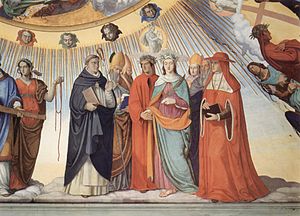 Paradiso is the third and final part of Dante's Divine Comedy. It is an allegory telling of Dante's journey through Heaven, guided by Beatrice, who symbolises theology. In the poem, Paradise is depicted as a series of concentric spheres surrounding the Earth, consisting of the Moon, Mercury, Venus, the Sun, Mars, Jupiter, Saturn, the Fixed Stars, the Primum Mobile and finally, the Empyrean. It was written in the early 14th century. Allegorically, the poem represents the soul's ascent to God.
Paradiso is the third and final part of Dante's Divine Comedy. It is an allegory telling of Dante's journey through Heaven, guided by Beatrice, who symbolises theology. In the poem, Paradise is depicted as a series of concentric spheres surrounding the Earth, consisting of the Moon, Mercury, Venus, the Sun, Mars, Jupiter, Saturn, the Fixed Stars, the Primum Mobile and finally, the Empyrean. It was written in the early 14th century. Allegorically, the poem represents the soul's ascent to God.Book of Exodus
Moses
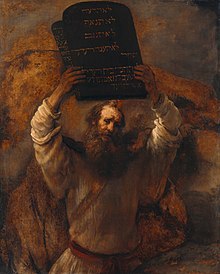 Moses was born in a time when his people, the Israelites, an enslaved minority, were increasing in numbers and the Egyptian Pharaoh was worried that they might ally with Egypt's enemies. Moses' Hebrew mother, Jochebed, secretly hid him when the Pharaoh ordered all newborn Hebrew boys to be killed in order to reduce the population of the Israelites. Through the Pharaoh's daughter (identified as Queen Bithia in the Midrash), the child was adopted as a foundling from the Nile river and grew up with the Egyptian royal family. After killing an Egyptian slavemaster (because the slavemaster was smiting a Hebrew), Moses fled across the Red Sea to Midian, where he encountered the God of Israel speaking to him from within a "burning bush which was not consumed by the fire" on Mount Horeb (which he regarded as the Mountain of God).
Moses was born in a time when his people, the Israelites, an enslaved minority, were increasing in numbers and the Egyptian Pharaoh was worried that they might ally with Egypt's enemies. Moses' Hebrew mother, Jochebed, secretly hid him when the Pharaoh ordered all newborn Hebrew boys to be killed in order to reduce the population of the Israelites. Through the Pharaoh's daughter (identified as Queen Bithia in the Midrash), the child was adopted as a foundling from the Nile river and grew up with the Egyptian royal family. After killing an Egyptian slavemaster (because the slavemaster was smiting a Hebrew), Moses fled across the Red Sea to Midian, where he encountered the God of Israel speaking to him from within a "burning bush which was not consumed by the fire" on Mount Horeb (which he regarded as the Mountain of God).God sent Moses back to Egypt to demand the release of the Israelites from slavery. Moses said that he could not speak with assurance or eloquence, so God allowed Aaron, his brother, to become his spokesperson. After the Ten Plagues, Moses led the Exodus of the Israelites out of Egypt and across the Red Sea, after which they based themselves at Mount Sinai, where Moses received the Ten Commandments. After 40 years of wandering in the desert, Moses died within sight of the Promised Land.
Burning bush
 The burning bush is an object described by the Book of Exodus as being located on Mount Horeb. According to the narrative, the bush was on fire, but was not consumed by the flames, hence the name.
The burning bush is an object described by the Book of Exodus as being located on Mount Horeb. According to the narrative, the bush was on fire, but was not consumed by the flames, hence the name.In the biblical narrative, the burning bush is the location at which Moses was appointed by Yahweh (God) to lead the Israelites out of Egypt and into Canaan.
The Hebrew word used in the narrative, that is translated into English as bush, is seneh, which refers in particular to brambles; seneh is a biblical dis legomenon, only appearing in two places, both of which describe the burning bush. It is possible that the reference to a burning bush is based on a mistaken interpretation of Sinai , a mountain described by the Bible as being on fire. Another possibility is that the use of seneh may be a deliberate pun on Sinai , a feature common in Yahwistic texts.
In the narrative, an angel of the Lord is described as appearing in the bush, and God is subsequently described as calling out from it to Moses, who had been grazing Jethro's flocks there. When Moses starts to approach, God tells Moses to take off his sandals first, due to the place being holy ground, and Moses hides his face.
Plagues of Egypt
The first three plagues seemed to affect "all the land of Egypt", while the 4th, 5th, 6th, 7th, and 9th did not affect the children of Israel. Conditions of the 8th plague are unclear. For the last plague, the Torah indicates that they were only spared from the final plague by sacrificing the Paschal lamb, marking their place directly above their doors with the lamb's blood, and eating the roasted sacrifice together with Matzot in a celebratory feast. The Torah describes God as actually passing through Egypt to kill all firstborn children and cattle, but passing over (hence "Passover") houses which have the sign of lambs' blood on the doorpost. It is debated whether it was actually God who came through the streets or one of his angels. Some also think it may be the Holy Spirit. It is most commonly known as the "Angel of Death". The night of this plague, Pharaoh finally relents and sends the Israelites away under their terms.
Manna
An edible substance that, according to the Bible and the Qura, God provided for the Israelites during their travels in the desert.In the Hebrew Bible, manna is described twice: once in Exodus 16:1-36 with the full narrative surrounding it, and once again in Numbers 11:1-9as a part of a separate narrative.In the description in the Book of Exodus, manna is described as being "a fine, flake-like thing" like the frost on the ground. Exodus adds that manna was comparable to hoarfrost in size, similarly had to be collected before it was melted by the heat of the sun, and was white like coriander seed.
Passover
An important, biblically derived Jewish festival. The Jewish people celebrate Passover as a commemoration of their liberation by God from slavery in Egypt and their freedom as a nation under the leadership of Moses. It commemorates the story of the Exodus as described in the Hebrew Bible especially in the Book of Exodus, in which the Israelites were freed from slavery in Egypt. According to standard biblical chronology, this event would have taken place at about 1300 BCETen Commandment
The Ten Commandments, also known as the Decalogue, are a set of commandments which the Bible describes as having been given to the Israelites by God at biblical Mount Sinai. The Ten Commandments are listed twice in the Hebrew Bible, first at Exodus 20:1–17, and then at Deuteronomy 5:4–21. Both versions state that God inscribed them on two stone tablets, which he gave to Moses. According to New Testament writers, the Ten Commandments are clearly attributed to Moses (Mark 7:10, see also John 7:19).Modern scholarship has found likely influences in Hittite and Mesopotamian laws and treaties, but is divided over exactly when the Ten Commandments were written and who wrote them.
The commandments include instructions to worship only God, to honour parents, and to keep the sabbath; as well as prohibitions against idolatry, blasphemy, murder, adultery, theft, dishonesty, and coveting. Different religious groups follow different traditions for interpreting and numbering them.
Allegory / Fable / Parable
Allegory
As a literary device, an allegory in its most general sense is an extended metaphor.Writers or speakers typically use allegories as literary devices or as rhetorical devices that convey hidden meanings through symbolic figures, actions, imagery, and/or events, which together create the moral, spiritual, or political meaning the author wishes to convey.
One of the best-known examples of allegory, Plato's Allegory of the Cave, forms a part of his larger work The Republic.
Fable
A literary genre: a succinct fictional story, in prose or verse, that features animals, mythical creatures, plants, inanimate objects, or forces of nature that are anthropomorphized (given human qualities, such as verbal communication) and that illustrates or leads to an interpretation of a moral lesson (a "moral"), which may at the end be added explicitly as a pithy maxim.
Parable
A succinct, didactic story, in prose or verse, which illustrates one or more instructive lessons or principles. It differs from a fable in that fables employ animals, plants, inanimate objects, or forces of nature as characters, whereas parables have human characters. A parable is a type of analogy.
para-: side by side
parallel (v.) be equivalent to
example: They parallel with one another.
paragraph (n.) a distinct portion of written or printed matter dealing with a particular idea, usually beginning with an indentation on a new line
example: Don't omit this paragraph when you write your report.
parasol (n.) a lightweight umbrella used, especially by women, as a sunshade
example: Cindy bought a pretty parasol for me.
parachute (n.) a folding, umbrellalike, fabric device with cords supporting a harness or straps for allowing a person, object, package, etc., to float down safely through the air from a great height
example: When his parachute failed he thought he was a goner.

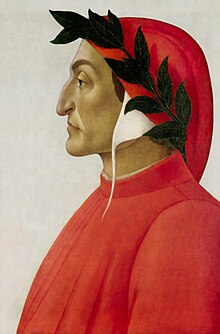

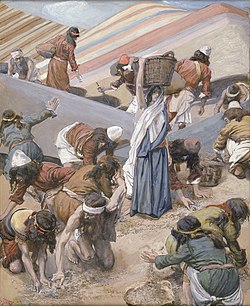


沒有留言:
張貼留言